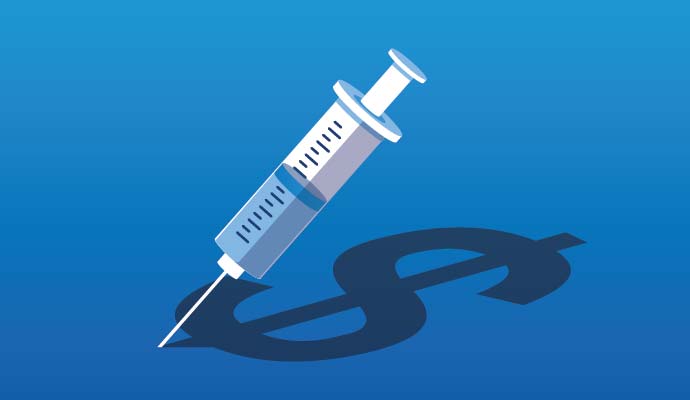J&J Initiates Global Phase 3 Clinical Trial for COVID-19 Vaccine
The Phase 3 trial of the COVID-19 vaccine is based on positive results from a Phase 1/2a study, which showed that safety and immunogenicity were supportive of further development.

Source: Thinkstock
- Johnson & Johnson recently announced the launch of a large-scale, multi-country Phase 3 clinical trial for its COVID-19 vaccine candidate, JNJ,78436735.
The ENSEMBLE trial will enroll nearly 60,000 volunteers across three continents and will study the safety and efficiency of a single COVID-19 vaccine dose versus a placebo, the drug manufacturer stated.
The trial’s initiation is based on positive results from the company’s Phase 1/2a clinical study, which showed that safety and immunogenicity after a single vaccination were supportive of further development.
“With our vaccine candidate now in our global Phase 3 trial, we are one step closer to finding a solution for COVID-19. We used a highly scientific and evidence-based approach to select this vaccine candidate,” Mathai Mammen, MD, PhD, global head at Janssen research & development, said in the announcement.
“We are extremely grateful for the tireless efforts of our researchers and for the vital contributions of those participants who have volunteered to take part in our studies. Together, we are working to help combat this pandemic.”
The Phase 3 study will include both individuals with and without comorbidities associated with greater risk for progression to severe COVID-19.
HHS' Biomedical Advanced Research and Development Authority (BARDA) and the National Institute of Allergy and Infectious Disease (NIAID), part of the National Institutes of Health, will help fund the trial.
Johnson & Johnson also noted a collaboration with the United Kingdom and Northern Ireland to launch a separate Phase 3 clinical trial in multiple countries. The trial will explore a two-dose regimen of the company’s vaccine candidate.
“We remain fully focused on developing an urgently needed, safe and effective COVID-19 vaccine for people around the world,” said Paul Stoffels, MD, vice chairman of the executive committee and chief scientific officer at Johnson & Johnson.
“We greatly value the collaboration and support from our scientific partners and global health authorities as our global team of experts work tirelessly on the development of the vaccine and scaling up our production capacity with a goal to deliver a vaccine for emergency use authorization in early 2021.”
Johnson & Johnson is still on track to provide 1 billion doses of its COVID-19 vaccine each year starting in early 2021, if it is proven to be safe and effective, the company said.
Last week, Johnson & Johnson announced that its lead COVID-19 vaccine candidate, Ad26.COV2.S, showed positive outcomes in preclinical studies using hamsters.
Specifically, the candidate elicited an immune response as demonstrated by neutralizing antibodies and prevented severe clinical disease, such as weight loss, pneumonia, and mortality, in 20 Syrian golden hamsters.
Prior to this clinical study, Johnson and Johnson announced that Ad26.COV2.S protected against SARS-CoV-2 infection in an August preclinical study using monkeys.
The candidate had an immune response among rhesus macaques as demonstrated by the high levels of neutralizing antibodies to SARS-CoV-2, which prevented future infection and provided complete protection in the lungs in non-human primates, researchers said.
“We are excited to see these pre-clinical data because they show our SARS-CoV-2 vaccine candidate generated a strong antibody response and provided protection with a single dose,” Paul Stoffels, MD, vice chairman of the executive committee and chief scientific officer, Johnson & Johnson, said in the August announcement.
“The findings give us confidence as we progress our vaccine development and upscale manufacturing in parallel, having initiated a Phase 1/2a trial in July with the intention to move into a Phase 3 trial in September.”
